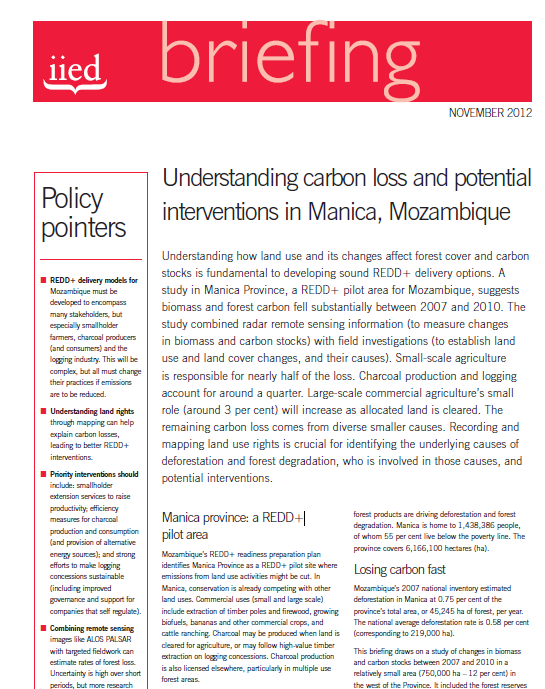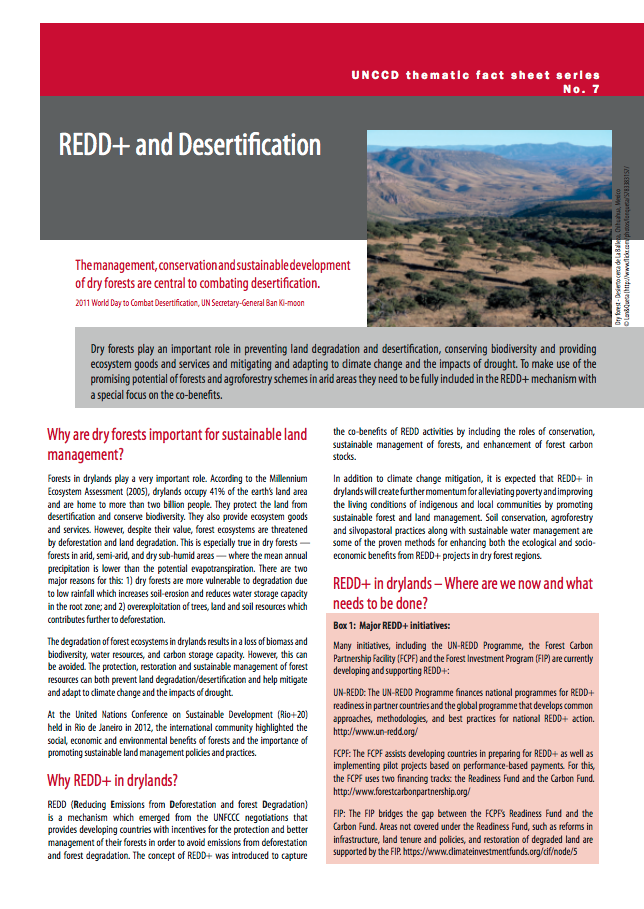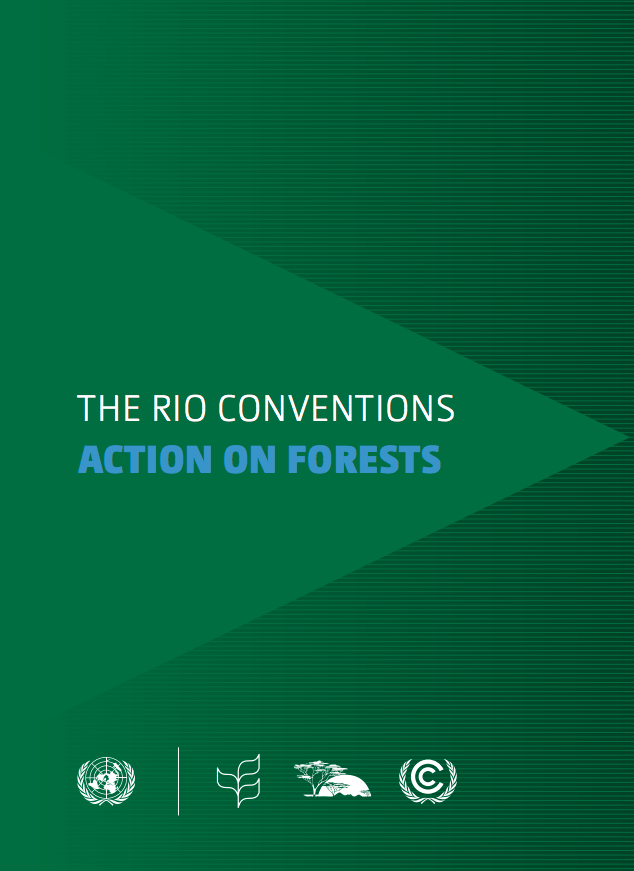Understanding carbon loss and potential interventions in Manica, Mozambique
Understanding how land use and its changes affect forest cover and carbon stocks is fundamental to developing sound REDD+ delivery options. A study in Manica Province, a REDD+ pilot area for Mozambique, suggests biomass and forest carbon fell substantially between 2007 and 2010. The study combined radar remote sensing information (to measure changes in biomass and carbon stocks) with field investigations (to establish land use and land cover changes, and their causes). Small-scale agriculture is responsible for nearly half of the loss.




